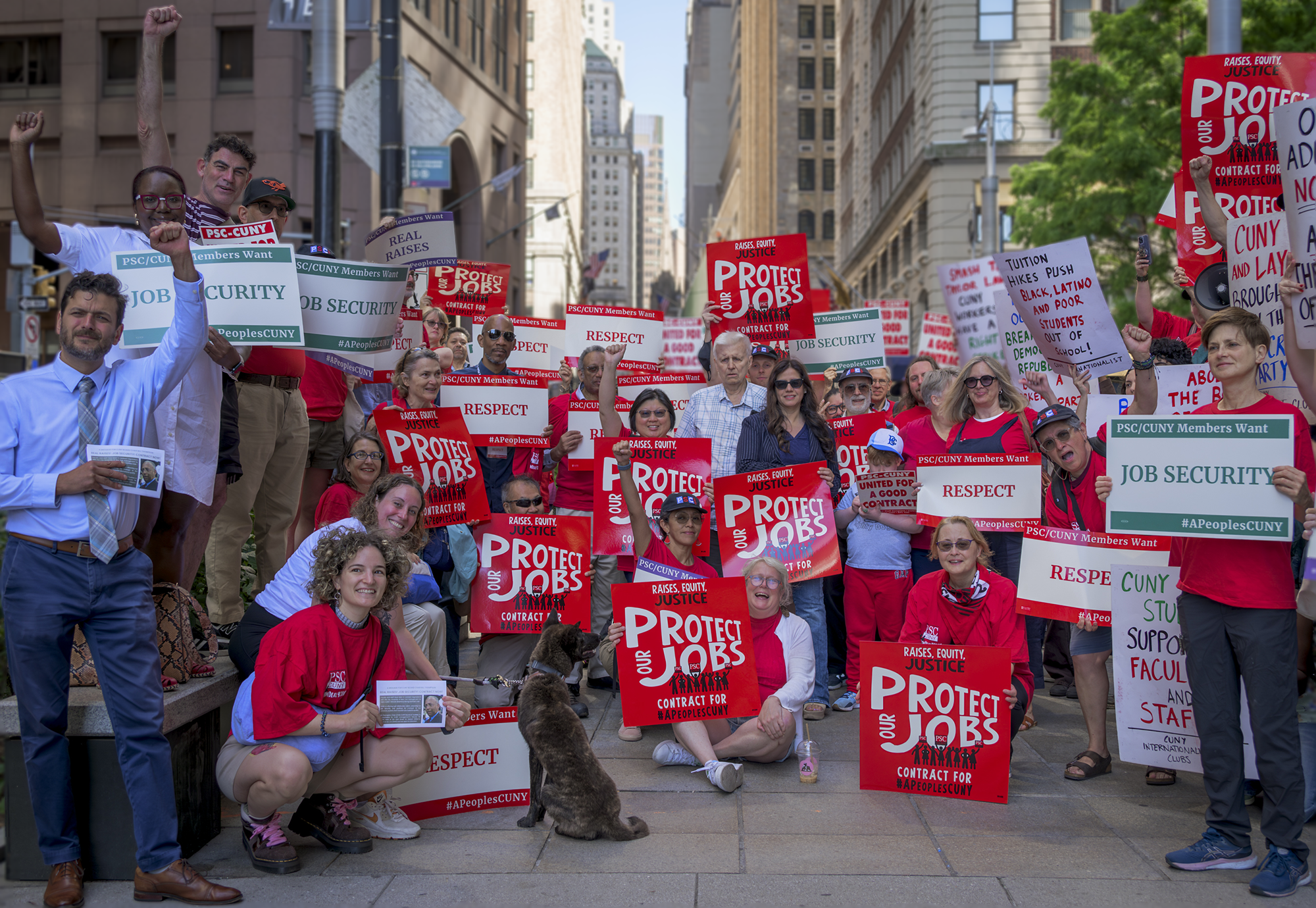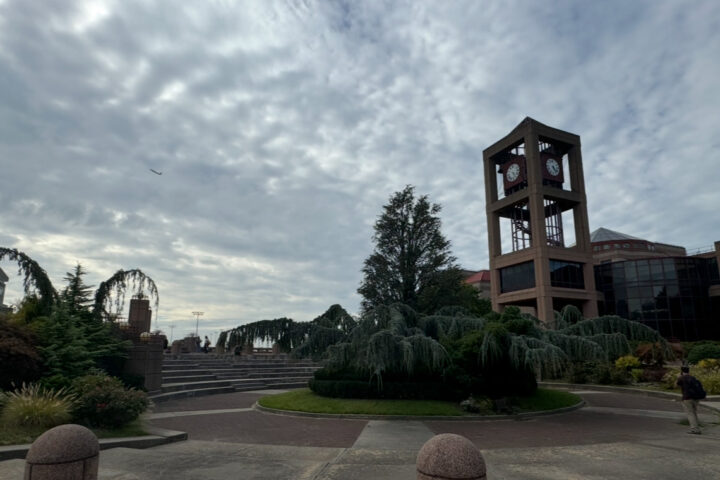The Professional Staff Congress (PSC), representing 30,000 faculty and staff across CUNY, launched the academic year with unprecedented activism. The PSC has stepped into a more political role, defending labor rights, public higher education, immigrant rights, and student access to affordable education, all linked to President Trump’s agenda.
In an August 26th digital report, PSC President James Davis addressed the list of federal threats, from slashing research funding to weaponizing antisemitism allegations to suppress speech on campuses. Davis warned that these actions violate our first amendment rights and undermine the public university system. Additionally, major federal student and teacher aid programs now face deep cuts. This marks a notable shift from his earlier caution, casting in the union’s new role into a frontline defender of public higher education.
The PSC is not acting alone. In tandem with its organizing, the New York Public Interest Research Group (NYPIRG) has made ending tuition hikes and advocating for the New Deal for CUNY (S2274/A1727) and SUNY (S2049/A890) bills top priorities of its higher education campaign. This coming spring, the PSC and NYPIRG representatives will travel to the New York State Capitol in Albany to lobby state legislators in both the Senate and State Assembly to pass the legislation.
While professors and faculty are taking direct action, what should students know about the issue? How are they affected by it? The Knight News spoke with two current QC students and a recent alum to shed light on their perspectives.
“Receiving federal and state funding is what allows [many] New Yorkers to even be able to receive an education through aid and grants, and it’s also the reason why a lot of us attend public universities due to its affordability,” said Jennet You, a junior majoring in Political Science and former intern for NYPIRG’s higher education campaign.
You emphasized the need for more reliable state funding, particularly for programs that support low-income and immigrant communities.
Dean Tirado, another Political Science junior and member of the QC Student Association, echoed these concerns. Students are oftentimes “the ones being asked to sacrifice the most,” he said, pointing to reduced course offerings and limited campus services and resources. Tirado called for “more stable funding” for CUNY and SUNY in general, strong DEI programs, and support for student organizing. “Whether it is organizing through groups like NYPIRG and student government, joining rallies, meeting with lawmakers, or just starting conversations with students, students have real power,” Tirado said.
The PSC’s actions are beyond contract negotiations and policy. Union members have rallied at Brooklyn College, demanding the reinstatement of four faculty members abruptly fired without explanation, on July 31st. It also expanded its political footprint by endorsing Zohran Mamdani for mayor and launching a get-out-the-vote campaign through its action fund.
“Mamdani has campaigned on filling City job vacancies, and we must work to ensure that happens at CUNY and beyond,” Davis wrote in his report.
The PSC is working directly on the ground, from supporting immigrants in courthouses to representing workers at CUNY. On September 6th, the union proudly marched in the NYC Labor Day Parade, which kicked off on 5th Ave. in Midtown under sunny skies before afternoon storms rolled in. Leading a long line of parade floats were Senator Bernie Sanders and Zohran Mamdani; members from PSC appeared in tow.
The hopeful day symbolized a reinvigorated movement for labor rights. The PSC’s presence that day also underscored its evolving role as a frontline actor in the fight for institutional integrity.
The PSC must navigate its political strategy with great care. Too much is at stake for unions to retreat from their commitments to larger struggles for democratic accountability.











